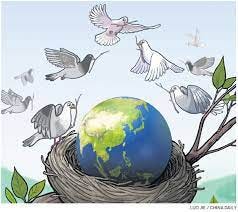The revolutionary subject of our times
The neocolonized peoples are constructing a new world order
My commentary of December 1, 2023, reflected on the life and work of Dr. Thalia Fung, founder of the Cuban Society of Philosophical Investigation, who died at the age of 89 on November 20, 2023. Dr. Fung dedicated her life to the formulation of a “political science from the South,” basing her formulation in the works of Marx, Lenin, Martí, and Fidel. The political science from the South contributes to the construction of an alternative world order, necessary for the neocolonized peoples of the global South.
Thalía’s final project was focused on the revolutionary subject, which she defined as the active driver of the productive forces, promoting changes in economy, politics, culture, and thought. She maintained that in each society, a revolutionary subject forms itself, and she stressed the need for the accurate identification of the revolutionary subject in different societies, from the times of Marx to the times of Fidel, whose teachings continue to shape the Cuban revol…


